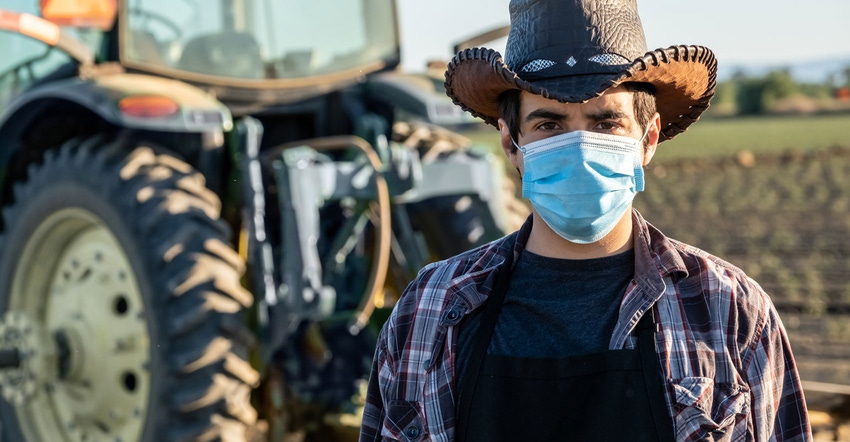June 26, 2020

As we continue to deal with the issues from COVID-19, you may have questions about potential liability related to the virus.
Although most farms remained opened during the state shutdowns, there are still concerns for how to keep employees safe from spreading and catching COVID-19 while at work. Taking steps now may limit potential liability by demonstrating your farm is taking the necessary steps to limit the spread of the virus.
You should consider talking to your general liability insurance provider and workers compensation insurance provider to determine when issues related to the virus could be covered.
Many of the claims that will likely be brought against an employer will relate to negligence. Negligence is the failure to exercise a duty of care that we would expect a reasonable and prudent person to use. In the case of a COVID-19 claim, we might expect a reasonable and prudent employer to take appropriate steps to limit the spread of the virus to employees. If a customer brings the claim, we would potentially expect a reasonable and prudent business owner to take the appropriate steps to limit the spread of the virus to customers.
Here are some steps you can take:
Stay informed. The first step is to stay informed of the latest information from the appropriate governmental and health authorities.
This information is often advisory and does not carry the weight of law, but it can provide employers with a better understanding of how to reduce the risk of potentially spreading the virus amongst employees and potential customers, depending on what the farm does.
As we have seen, this information can change as science continues to learn more about the virus. I recognize this can add more work during a busy time of year and might be difficult for many of you to do, but keeping up with this information will ensure that you are using the latest practices to keep your workers healthy.
Practice good communication. Communicate safety practices of the farm to your employees.
When are the employees required to wear face coverings? Is more than a cloth mask required? Are disposable masks required? Who is responsible for providing the masks? What are the sanitization practices of the farm? If the farm has a store or other business that allows customers on the property, what new methods exist to ensure customer safety? What are the current rules in the state that the farm needs to consider?
If an employee needs to travel out of state, you should have policies in place for the employee to report that travel ahead of time so you can determine if self-quarantine is necessary. For example, if the employee is traveling to a current COVID-19 hotspot to visit family, that employee might need to self-quarantine for two weeks or be required to get tested before coming back.
Get it down on paper. Convey all this information to your employees. They should then sign off that they understand what the job now requires.
You might also want to consider including new signage around the farm to remind employees of the new practices. If these practices change, communicate those changes with your employees so they are aware of them.
See what your insurance covers. At the same time, you should be communicating with your insurance providers to determine if your existing policies cover anything related to the spread of the virus.
Your general liability provider may be able to provide you with other examples of practices to limit your potential liability. At the same time, your workers compensation provider will help you determine if the virus is considered an “occupational disease” or an illness that would fall under workers compensation coverage in your state.
If the virus is not an occupational disease, then it would be the same as catching a cold or the flu and will likely not be covered under workers compensation insurance.
Developing practices, educating employees on these new practices and checking with your insurance providers will demonstrate that you are attempting to limit the spread of the virus on the farm. Documenting how these practices go into place is essential to show that the farm is not breaching the duty of care in a potential negligence suit.
Although many expect a wave of litigation to come out of this pandemic related to employers, early planning may prevent a number of these lawsuits from affecting your farm.
Goeringer is an Extension legal specialist with University of Maryland.
Read more about:
Covid 19About the Author(s)
You May Also Like






